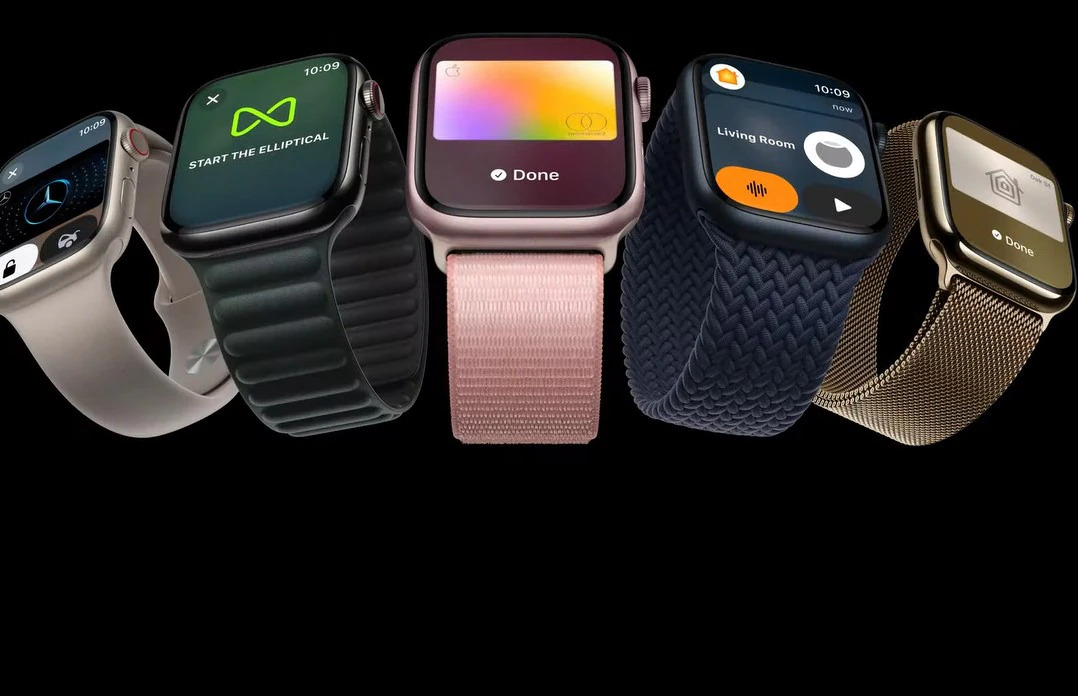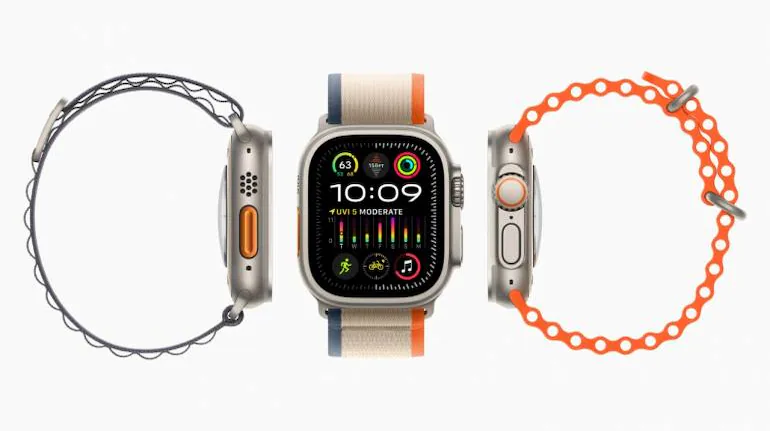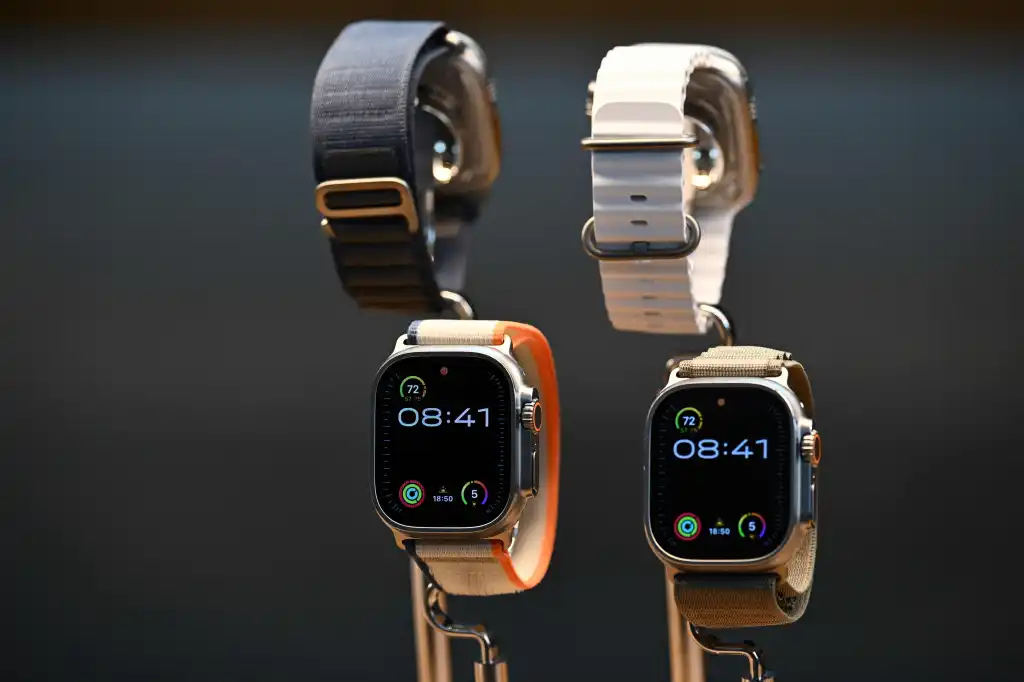Apple has decided to cease the sales of Series 9 and Ultra 2 smartwatches in the United States due to an ongoing patent dispute.


Apple announced on Monday that it will temporarily halt the sales of its Series 9 and Ultra 2 smartwatches in the United States starting this week. This decision is a result of an ongoing patent dispute concerning the technology behind the blood oxygen feature on these devices.
The pause in sales follows a ruling in October by the U.S. International Trade Commission (ITC), which stated that Apple’s Apple Watches infringe upon the patent rights of medical technology company Masimo. This ruling has the potential to prevent Apple from importing its smartwatches into the country.
President Joe Biden is currently reviewing the decision until December 25th, however, Apple has stated that it is taking necessary measures to comply if the ruling is upheld. The Office of the U.S. Trade Representative, which is responsible for handling the case within the Biden administration, has confirmed that Ambassador Katherine Tai is thoroughly evaluating all aspects of this matter.
In the event that the decision is not vetoed, the ban will come into effect on December 26th.
Apple has announced that it will temporarily halt the sales of the watches on its website starting from December 21st, and from Apple retail stores after December 24th. It is important to note that other models, such as the Apple Watch SE, which do not include the blood oxygen sensor, remain unaffected by this dispute.
According to Ryan Reith, program vice president at IDC, the holiday sales of Apple Watches in the U.S. will not be affected, and the true impact of the ruling will be felt in January and February, which are typically slower sales months for Apple. Reith also mentioned that Apple has sufficient inventory of Watch 8 and SE to meet the demand during that period. However, the larger concern lies in whether Apple will be able to utilize the blood oxygen sensor technology in future devices, or if they will need to find an alternative solution or reach a settlement.
Joe Kiani, the CEO of Masimo, expressed his willingness to engage in negotiations with Apple during an interview with CNBC in October. In a statement released on Monday, Masimo emphasized the importance of respecting the ITC decision, which serves to safeguard intellectual property rights and uphold public trust in the United States’ patent system, while also promoting the growth of the country’s industry.
Counterpoint Research reports that Apple currently holds approximately 25% of the global smartwatch market, a figure that typically increases to over a third during the fourth quarter, coinciding with the holiday sales seasons in the U.S. and Europe. Both the Series 9 and the Ultra 2 models will continue to be available for purchase outside of the United States, including during the Lunar New Year season in Asia.
Apple, on the other hand, contests the ITC’s ruling, deeming it to be flawed and intends to lodge an appeal with the Federal Circuit in order to seek a reversal of the decision.
On Monday, Apple’s shares concluded the trading day with a 0.9% decrease.
Reporting by Samrhitha Arunasalam in Bengaluru, Blake Brittain in Washington and Stephen Nellis in San Francisco; Additional reporting by Juby Babu in Bengaluru Editing by Anil D’Silva, Deepa Babington and Matthew Lewis
Masimo has lodged an accusation against Apple, claiming that the tech giant has poached its employees, stolen its pulse oximetry technology, and integrated it into the highly popular Apple Watch.
In May, a jury trial regarding Masimo’s allegations resulted in a mistrial in a California federal court. In a separate legal action, Apple has filed a patent infringement lawsuit against Masimo in a federal court in Delaware. Apple has labeled Masimo’s legal actions as a strategic move to eliminate competition for its own smartwatch.
Earlier this year, the U.S. Patent and Trademark Office rejected Apple’s requests to review the validity of the patents in question, which were also at the center of the International Trade Commission’s decision.
According to Bloomberg’s report on Monday, sources familiar with the matter revealed that Apple engineers are currently working on modifying the algorithms in their smartwatches. These adjustments aim to enhance the accuracy of oxygen saturation measurements and improve the way the data is presented to customers.
In anticipation of the ban remaining in effect, Apple is exploring various legal and technical options. The company has already begun preparing its stores for the potential changes by sending new signs to its retail outlets. These signs promote the Apple Watch but do not display images of the Series 9 and Ultra 2 models, which are the specific models targeted by the ban.
When approached for comment, an Apple spokesperson informed Bloomberg that the company is actively working on submitting a workaround to the U.S. customs agency. This agency is responsible for approving any modifications that would allow the product to be reintroduced to the market.
Regarding the Bloomberg report, a spokesperson from Masimo told Reuters that the patents in question pertain to hardware. Masimo believes that Apple must make changes to the hardware, while Apple has not responded to the request for comment.
Although Apple did not directly address the Bloomberg report, the company did state earlier on Monday that it is exploring “technical options” to ensure that Apple Watches remain available to customers. Furthermore, Apple expressed its commitment to taking all necessary measures to restore the devices to store shelves if the International Trade Commission’s order remains in effect.
It is worth noting that since 2013, no presidential administration has vetoed an International Trade Commission ruling. The last instance occurred during President Barack Obama’s administration when an import ban on Apple’s iPhones and iPads was overturned in a patent dispute with Samsung.
In February, the Biden administration made no decision on the matter.
